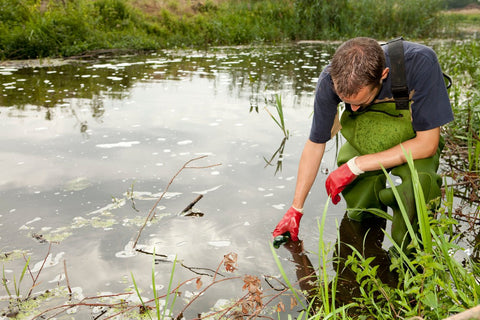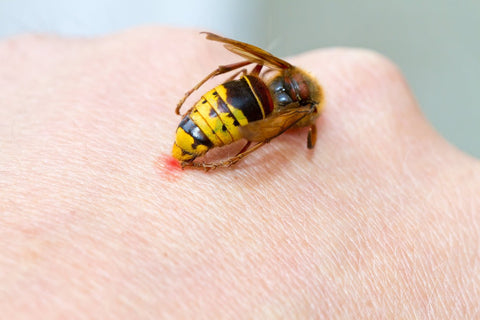The "Law for the Protection of Insect Diversity in Germany and for the Amendment of Other Regulations" was promulgated in the Federal Law Gazette on August 30, 2021. The entry into force of the individual components of the law is regulated in Article 4 of the law. The amendments made to the Federal Nature Conservation Act by the Insect Protection Act then come into force predominantly on March 1, 2022.
Wasps, whose populations are endangered by human interventions, are also particularly in focus here.
Wasps are an important part of our ecosystem. They contribute to pollination and keep pests in check. Nevertheless, many people find wasps annoying and resort to drastic measures to get rid of them. However, the new Insect Protection Act has introduced clear regulations that prohibit killing wasps. In this blog post, we examine what can be done against wasps, which methods are prohibited, what penalties threaten, and why VapoWesp is the best alternative to repel wasps.
The Insect Protection Act, which came into force in Germany, aims to protect insect populations and preserve their habitats. Wasps are particularly in focus here, as their populations are threatened by human interventions.
Prohibited methods for wasp control:
-
Chemical insecticides: The use of chemical insecticides to kill wasps is strictly prohibited. These agents can harm not only wasps but also other beneficial insects and the environment.
-
Mechanical traps: Mechanical traps aimed at catching and killing wasps are also prohibited. This includes electric insect killers that often kill insects indiscriminately.
-
Destruction of nests: Without a special permit, it is forbidden to destroy or remove wasp nests. This permit is only granted in exceptional cases when there is an immediate danger to people.
Penalties for violations:
Violations of the Insect Protection Act can result in severe penalties. Depending on the severity of the offense, fines ranging from several hundred to several thousand euros can be imposed. In particularly serious cases, such as the intentional destruction of wasp nests, higher penalties may also be threatened.
VapoWesp: The environmentally friendly alternative for wasp repellent
Given the strict regulations of the Insect Protection Act, the question arises how to effectively and environmentally protect oneself from wasps. This is where VapoWesp comes into play.
-
No biocides or toxins: VapoWesp relies on natural ingredients and completely avoids chemical insecticides. This makes it safe for humans, pets, and the environment.
-
Natural smoke: VapoWesp produces smoke by burning coffee powder. The smoke effectively repels wasps without killing them. This respects the protection provisions of the Insect Protection Act and simultaneously contributes to the protection of the insect population.
-
Flavored herbal blends: To make the smoke more pleasant, special herbal blends (VapoPowder) are added. These provide a pleasant scent but have no effect on repelling — because it is the smoke that signals "danger" to wasps and causes them to avoid the area around the smoking source.
-
Easy to use: Using VapoWesp is straightforward. The coffee powder is placed in a smoking device, flavored with a VapoPowder of choice, and ignited.
The smoke spreads evenly and creates a wasp-free zone. -
Environmental friendliness: VapoWesp is a sustainable solution that does not burden the environment. The natural raw materials and the avoidance of synthetic chemicals make it an environmentally friendly choice.
The Insect Protection Act protects wasps and other insect species from harmful human interventions. Prohibited methods such as chemical insecticides, mechanical traps, and the destruction of nests can result in heavy fines.
VapoWesp offers an effective and environmentally friendly alternative for repelling wasps. It uses natural smoke to keep wasps away without killing them, thus respecting the provisions of the Insect Protection Act.
With VapoWesp and the mentioned home remedies against wasps, you can enjoy your summer evenings outdoors without having to worry about annoying wasps or wasp stings.





